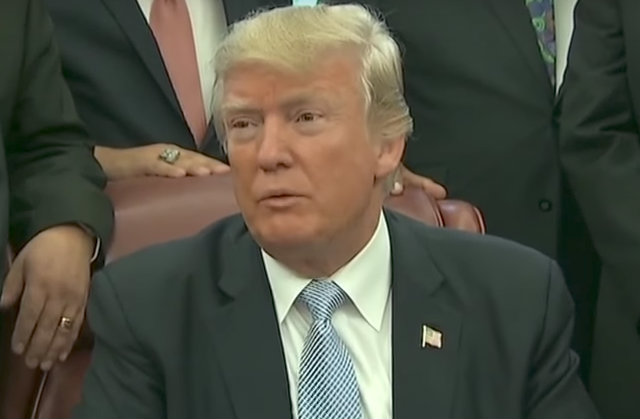
Here we go again.
With the late night revelation that former Trump campaign chairman Paul Manafort was the subject of at least two separate Foreign Intelligence Surveillance Act (FISA) warrants both prior to and after last year’s presidential election, the president’s media and Twitter allies immediately began claiming vindication and suggesting the president’s infamous March 4, 2017, Twitter rant about his wires being “tapped” was accurate.
The truth, however, is that last night’s media report does absolutely nothing to demonstrate that the president was right.
To be clear, when the Government wishes to secure a FISA warrant, they must produce evidence to one of the designated federal judges demonstrating there is probable cause to conclude the target of the warrant is an agent of a foreign power. An “agent of a foreign power” is defined by statute as someone who, among other things, acts for or on behalf of a foreign power to engage in clandestine intelligence activities in the United States.
If the target is a U.S. citizen, the Government must take it a step further and demonstrate to the judge’s satisfaction that the target is a knowing agent of a foreign power. It’s not enough for the person to have engaged in the clandestine activities; they have to have done so intentionally and willfully. Put simpler, if you’re a U.S. citizen who is a buffoon and you do not realize you’re being used by a foreign power, you would not qualify under the statute.
So if CNN’s report last night is accurate, the Government was able to convince federal judges on at least two occasions (and likely more, assuming renewal applications were required) that Manafort was knowingly engaging in clandestine intelligence activities at the behest of a foreign power. The Government allegedly was able to demonstrate that to be true as far back as 2014, long before the president launched his presidential campaign, let alone hired Manafort as his campaign chairman. That is, on its own, a serious revelation and speaks poorly of the president’s general vetting of Manafort (whose foreign business and political connections were publicly known) prior to hiring him.
Getting back to the issue at hand, though, the existence of these alleged FISA warrants targeting Manafort still have nothing to do with what the president talked about in his March 4th Twitter rant. In the original posts, he specifically claimed that former President Obama had his “wires tapped” in Trump Tower, particularly his “phones in October”. He later clarified that he was speaking about surveillance in general and explicitly relied upon media reports as justification for his claims.
In an ongoing FOIA lawsuit I am currently pursuing with my law firm’s Managing Partner, Mark Zaid, on behalf of The James Madison Project and USA TODAY reporter Brad Heath, we have sought copies of any FISA warrants targeting the president, his campaign, his company, or his associates. We deliberately framed the lawsuit in a manner broader than the language of the president’s March 4th tweets for the simple reason that the description provided by the president was too incoherent and inconsistent with legitimate descriptions of warrants. Indeed, the Justice Department recently filed a sworn declaration in a separate FOIA lawsuit brought by American Oversight confirming that there are no records indicating any type of “wire tapp” consistent with the language used in the president’s March 4th tweets. However, the Government is nonetheless still refusing in my case to confirm or deny the existence or non-existence of any records reflecting any warrants (FISA or otherwise) targeting the president, his campaign, his company, or his associates. In the Government’s view, the president’s description of a “tapp” on his phone was very narrowly framed and did not constitute official confirmation of any actual FISA warrants.
Even so, does the CNN report prove that the president’s “wires” were “tapped”? No, they do not. It shows that Manafort was the subject of lawful surveillance, and it certainly is plausible that his communications with the president were caught up incidentally in that surveillance. However, applicable minimization procedures would have required the masking of the president’s identity (as a U.S. person) in the transcripts of any such intercepted communications. An exception to that rule is that the agency intercepting the communications can “unmask” the identity of a U.S. person if it is necessary to understand the foreign intelligence information at issue or to assess its importance.
So, at the absolute most, the president’s communications may have been incidentally collected, but his identity would not have been revealed in the transcript unless there had been a determination that it was necessary to understand the foreign intelligence information. That is a rather far cry from the president’s hyperbolic claims from March and his references to Nixon and Watergate.
Bradley P. Moss is a partner at the Washington, D.C. Law Office of Mark S. Zaid, P.C., where he has represented countless individuals (including whistleblowers) serving within the intelligence community, and is also the deputy executive director of the James Madison Project, through which he has represented media outlets such as Politico, Gawker, Daily Caller, and the Daily Beast in FOIA lawsuits against the Bush, Obama and Trump administrations.